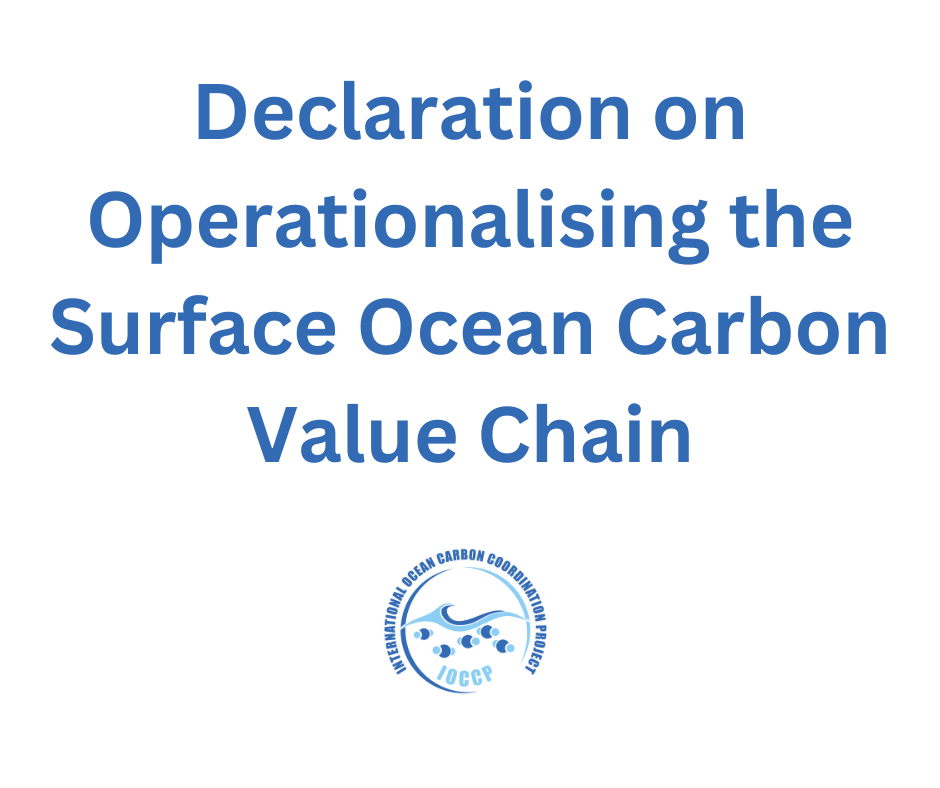
Late last year, over a hundred ocean carbon scientists from around the world met at Flanders Marine Institute (VLIZ) in Oostende, Belgium, to review the status of the Surface Ocean Carbon Value Chain and decide on specific improvements to the structure, process and information sharing. Now they have released a declaration for focused international and intergovernmental efforts to create a robust, resilient and sustainable surface ocean carbon observing system.
The Global Carbon Budget reports that in the last decade the ocean alone takes up about 26% of the CO₂ emitted to the atmosphere every year, thus limiting greater climate change. However, ocean CO₂ uptake varies significantly in time and space and a large number of high-quality continuous measurements is needed to monitor and predict the ever-changing scales and patterns of the air-sea interactions and to monitor and predict any adverse impacts of this uptake such as ocean acidification.
Over the past three decades, the community of ocean carbon experts and stakeholders has developed a multi-component system capable of measuring, storing, synthesising and mapping ocean-related carbon parameters, enabling their use in the annual Global Carbon Budget, model projections, and inversion systems. These activities together are referred to as the surface ocean carbon value chain. Despite the long-standing success in delivering critical information, the surface ocean carbon value chain is configured as a loose affiliation of observing systems and data synthesis elements that lack global integration.
In recent years, recognition of the fundamental value of accurate, systematic and robust ocean carbon information has increased significantly across managerial and policy-making scales, and as a result demands for ocean carbon data products continue to increase. Because of this, the ocean scientific community found it timely to review the operating model of the surface ocean carbon value chain.
In this so-called Oostende Declaration, published by the International Ocean Carbon Coordination Project, the scientific community share an ambition to completely transform the ability to deliver an integrated global ocean carbon monitoring system, helping countries to better understand and manage the causes of climate change in a timely and efficient manner. In order to do so, they request that all national and regional funding agencies and structures, global and regional intergovernmental agencies, as well as global and regional coordination bodies take note of this ambition and provide necessary support.